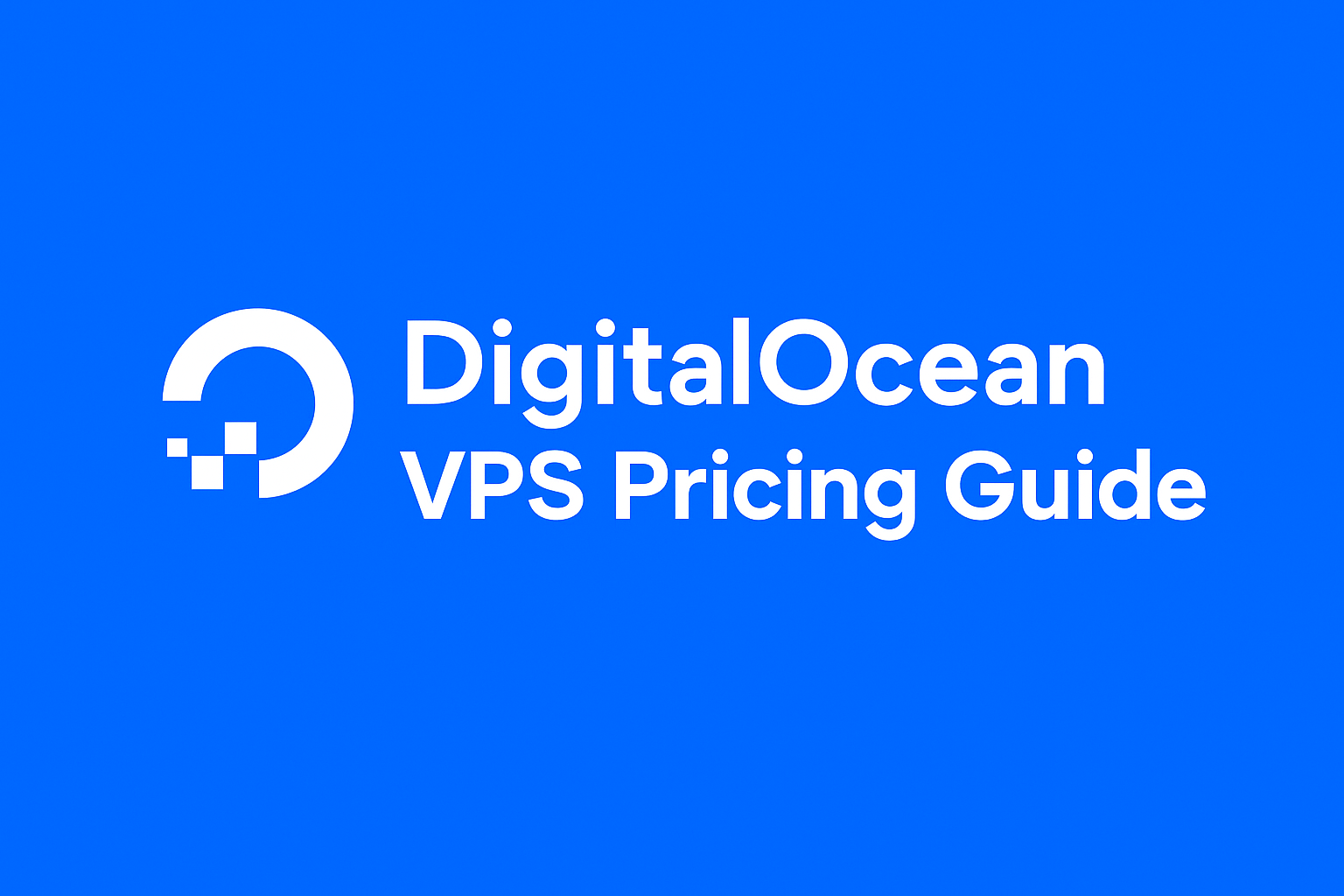DigitalOcean VPS Pricing Guide 2026 – Plans, Costs, and Competitor Comparison
DigitalOcean VPS Pricing Guide 2026 – Plans, Costs, and Competitor Comparison

Choosing the right VPS provider can be tricky. DigitalOcean is one of the most popular cloud hosting companies for developers, startups, and businesses. Its pricing is transparent, predictable, and flexible with hourly billing. But how does it compare with alternatives like LightNode and Vultr?
This guide breaks down DigitalOcean VPS pricing, compares it with competitors, and answers the most common questions international users ask.
DigitalOcean VPS Pricing (Starting at $10.89/month)
DigitalOcean offers multiple Droplet plans designed for different workloads. Their VPS starts with the following configuration:
| CPU | Memory | Storage | Traffic | Total Monthly Price | VPS per Hour Billing |
|---|---|---|---|---|---|
| 1 | 2 GB | 50 GB SSD | 2 TB | $10.89/month | $0.018/hour |
Key Highlights
- Transparent billing: hourly or monthly, whichever is lower.
- Data centers across the US, Europe, and Asia.
- Great for developers thanks to strong API and community tutorials.
LightNode VPS Pricing (Cheaper Alternative)
LightNode is another global VPS provider, popular among developers and cross-border businesses. Compared with DigitalOcean, it offers slightly cheaper entry pricing and more flexible payment options (Alipay, PayPal, credit card).
| CPU | Memory | Storage | Traffic | Total Monthly Price | VPS per Hour Billing |
|---|---|---|---|---|---|
| 1 | 2 GB | 50 GB SSD | 1 TB | $7.71/month | $0.012/hour |
Why Consider LightNode?
- 40+ worldwide data centers, including Asia, Middle East, and South America.
- Hourly billing from just $0.012/hour – perfect for short-term testing.
- 2-minute fast deployment and support for multiple operating systems.
Vultr VPS Pricing (Similar to DigitalOcean)
Vultr is another well-known cloud provider with competitive prices. Its entry plan is slightly higher than LightNode, but comes with more storage.
| CPU | Memory | Storage | Traffic | Total Monthly Price |
|---|---|---|---|---|
| 1 | 2 GB | 64 GB SSD | 2 TB | $12/month |
Why Consider Vultr?
- 32+ data centers worldwide.
- Slightly larger SSD storage (64GB vs. DigitalOcean’s 50GB).
- Popular for developers looking for consistent performance.
Pricing Comparison: DigitalOcean vs LightNode vs Vultr
Here’s a quick look at the three providers side by side:
| Provider | CPU | Memory | Storage | Traffic | Price | Billing Type |
|---|---|---|---|---|---|---|
| DigitalOcean | 1 | 2 GB | 50 GB SSD | 2 TB | $10.89/month | $0.018/hour |
| LightNode | 1 | 2 GB | 50 GB SSD | 1 TB | $7.71/month | $0.012/hour |
| Vultr | 1 | 2 GB | 64 GB SSD | 2 TB | $12/month | Monthly/hourly |
Quick Insights
- Cheapest Option: LightNode at $7.71/month.
- Best Storage: Vultr offers 64GB SSD vs. 50GB on others.
- Balanced Choice: DigitalOcean offers great community support and a solid balance between price and performance.
Frequently Asked Questions (FAQ)
1. How is DigitalOcean billed?
DigitalOcean charges hourly up to a monthly cap. For example, $0.018/hour will never exceed $10.89/month for the entry plan.
2. Is LightNode reliable for production use?
Yes, LightNode has 40+ data centers with stable uptime. It’s often chosen by cross-border e-commerce and developers needing hourly billing flexibility.
3. Why does Vultr cost more than LightNode?
Vultr includes 64GB SSD storage by default, which increases the monthly price to $12.
4. Which provider is best for beginners?
DigitalOcean, thanks to its easy UI, large community tutorials, and strong developer ecosystem.
5. Which provider is cheapest overall?
LightNode offers the lowest entry-level price at $7.71/month, making it a budget-friendly choice.
Final Thoughts
If you’re a developer or startup, DigitalOcean offers a great balance of price, performance, and community support. For those on a tighter budget or needing flexible hourly billing, LightNode is the most affordable option. Meanwhile, Vultr provides more storage and a wide data center network, making it another strong choice.
👉 The best VPS depends on your workload, location, and budget.